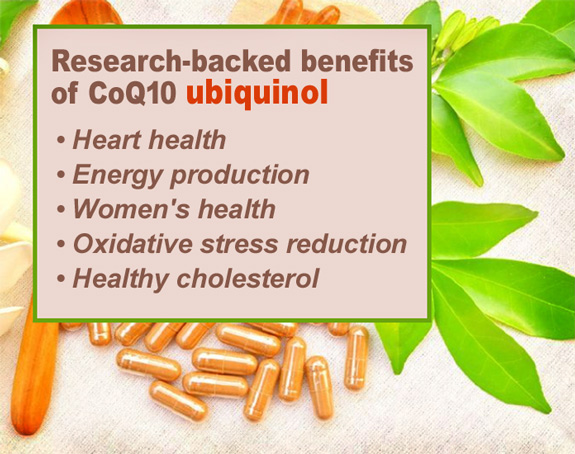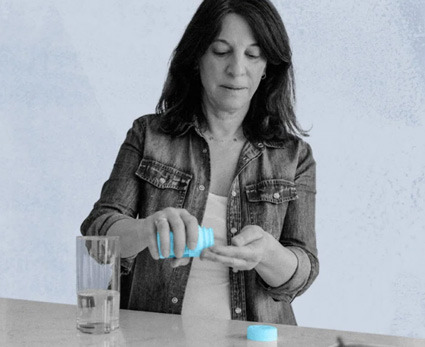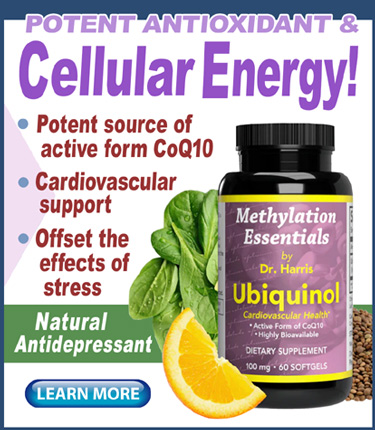In the world of supplementing, CoQ10 is relatively new. It has only been available in the U.S. for a little more than a decade; however, during that time more than 60 studies have focused light on the nutrient’s unique health benefits.
“CoQ10” is an abbreviation for “Coenzyme Q10.” CoQ10 is a naturally occurring biochemical and antioxidant produced by the human body.
It can also be obtained from dietary sources such as meat, fish, seeds, vegetables and dietary supplements. CoQ10 is found in most organisms, including animals and bacteria.
CoQ10 is recognized for nutritionally supporting heart health, hormone function, energy production, healthy cholesterol, and many other aspects of health.
Although CoQ10 is a “ubiquitous molecule”—meaning it is present in all human tissues—scientists now recognize that it diminishes drastically as people age.
CoQ10 exists in three states: Fully oxidized (ubiquinone), partially-reduced (semiquinone or ubisemiquinone), and fully-reduced (ubiquinol).
Since CoQ10-ubiquinol is the more reduced form it is thought to be more bioavailable, and research does, indeed, show that it is better-absorbed in the human body.
Included in the dozens of positive studies is a 2015 review that found ubiquinol CoQ10 supplementation improved certain blood markers that are associated with heart health. Another study—a 2022 meta-analysis conducted in Taiwan—found ubiquinol is effective in lowering fatigue.
One area where ubiquinol appears to excel in is the sphere of women’s health. A 2016 study found ubiquinol improved the vitality, social functioning and mental health of Japanese women.
And this month results of a new consumer research study showed ubiquinol supplementation was successful in alleviating menopause symptoms.
While most research on ubiquinol comes in the form of randomized, double-blinded and peer-reviewed human clinical trials, the new study, which is just a consumer survey, still adds an interesting dimension.
Most notably, 80% of participants in the survey reported “substantial relief of their menopause symptoms” after two months of ubiquinol supplementing.
Since 50% of women say their menopause symptoms have “impacted their home life,” and many women do not want to experience the side effects of taking drugs to assuage their symptoms, the survey findings are sure to be welcome news for many.
Study details
The study was carried out by the French research institute Expansion Consulteam in early 2024. Online French lifestyle influencers helped recruit the 200 female participants who participated. All the women were aged between 45 and 55.
The inclusion criteria were women who were experiencing menopausal discomfort including muscle aches and pains, emotional imbalance, and quality of life struggles such as stress and sleep interruption.
The non-inclusion criteria were women on hormone treatment, participating in non-drug therapies, or already taking some kind of herbal medicine or supplements for menopause.
Participants were provided a 200 milligram per day dose of ubiquinol over a two-month period. Participants were required to document the effects during and after the supplementation period.
Positive results
Before supplementing started—at baseline—the most prevalent menopausal symptoms reported included poor skin quality (94%), sleep disturbances (90%), and stress/anxiety (85%). At the end of the survey the findings revealed that 8 out of 10 of the participants found ubiquinol supplementing was effective in alleviating all or some of these symptoms.
• 80% of participants reported reduced stress and irritability, while the same percentage said they would recommend ubiquinol as a treatment for other women experiencing menopause.
• 80% of participants reported an improvement in mood and feeling “more emotionally stable” within thirty days of supplementation.
• 70% of participants reported improved sleep quality, less muscular pain, and improved well-being by the end of the 60-day period.
• 76% of participants said they felt the effects of the supplementation after 30 days.
It should be noted that the research was sponsored by a supplement manufacturing company. Moreover, the survey was self-reporting and observational in nature and does not carry the weight of a clinical trial.
Still, in a world that is increasingly relying on consumer feedback to help make decisions, the results can provide valuable insight that can be considered in conjunction with the existing peer-reviewed studies.
Highly bioavailable CoQ10 ubiquinol can be found in Essential Ubiquinol from Optimal Health Systems. Click the banner ad on this page to learn more.
– – –
Sources: NutritionInsight.com, PubMed.gov, Wiley Online Library, Frontiers In Pharmacology.



